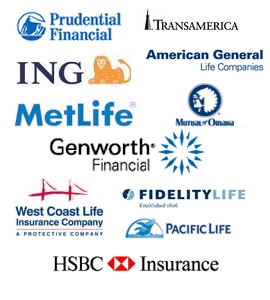Entire life and universal life insurance coverage are both considered irreversible policies. That suggests they're created to last your entire life and will not end after a certain period of time as long as required premiums are paid. They both have the possible to accumulate cash value with time that you may be able to obtain against tax-free, for any reason. Due to the fact that of this function, premiums might be greater than term insurance. Whole life insurance policies have a fixed premium, suggesting you pay the same amount each and every year for your coverage. Just like universal life insurance coverage, entire life has the potential to collect money worth over time, developing an amount that you might be able to obtain versus.
Depending on your policy's possible cash value, it might be utilized to avoid a superior payment, or be left alone with the potential to build up value over time. Possible growth in a universal life policy will vary based upon the specifics of your private policy, along with other aspects. When you purchase a policy, the providing insurer establishes a minimum interest crediting rate as outlined in your contract. Nevertheless, if the insurer's portfolio makes more than the minimum rates of interest, the company might credit the excess interest to your policy. This is why universal life policies have the prospective to make more than an entire life policy some years, while in others they can earn less.
Here's how: Given that there is a money worth element, you might have the ability to skip exceptional payments as long as the money worth is enough to cover your needed expenses for that month Some policies might permit you to increase or decrease the survivor benefit to match your particular circumstances ** In most cases you may borrow versus the cash value that might have built up in the policy The interest that you may have earned gradually collects tax-deferred Entire life policies provide you a fixed level premium that won't increase, the potential to collect money worth with time, and a repaired death benefit for the life of the policy.
As an outcome, universal life insurance premiums are typically lower throughout periods of high rate of interest than entire life insurance coverage premiums, frequently for the very same amount of coverage. Another essential distinction would be how the interest is paid. While the interest paid on universal life insurance is often changed monthly, interest on a whole life insurance coverage policy is typically changed yearly. This could mean that throughout periods of rising rate of interest, universal life insurance policy holders might see their money worths increase at a rapid rate compared to those in whole life insurance coverage policies. Some individuals may choose the set survivor benefit, level premiums, and the potential for development of a whole life policy.
Although whole and universal life policies have their own unique functions and advantages, they both focus on offering your liked ones with the cash they'll require when you pass away. By dealing with a certified life insurance coverage agent or company agent, you'll be able to choose the policy that best fulfills your individual needs, budget, and financial objectives. You can also get afree online term life quote now. * Provided necessary premium payments are timely made. ** Boosts might be subject to additional underwriting. WEB.1468 (How to become an insurance agent). 05.15.

All about What Is The Penalty For Not Having Health Insurance
You do not need to guess if you need to enlist in a universal life policy because here you can learn everything about universal life insurance coverage benefits and drawbacks. It's like getting a sneak peek prior to you purchase so you can decide if it's the right kind of life insurance for you. Continue reading to discover the ups and downs of how universal life premium payments, cash value, and death benefit works. Universal life is an adjustable kind of long-term life insurance that permits you to make modifications to two main parts of the policy: the premium and the survivor benefit, which in turn affects the policy's money value.
Below are a few of the general benefits and drawbacks of universal life insurance coverage. Pros Cons Developed to provide more flexibility than entire life Does not have actually the guaranteed level premium that's available with entire life Cash worth grows at a variable interest rate, which might yield greater returns Variable rates also imply that the interest on the money worth could be low More chance to increase the policy's money value A policy usually requires to have a positive money value to remain active One of the most attractive functions of universal life insurance coverage is the ability to select when and just how much premium you pay, as long as payments satisfy the minimum amount needed to keep the policy active and the Internal Revenue Service life insurance coverage guidelines on the maximum amount of excess premium payments you can make (How much does car insurance cost).

But with this versatility likewise comes some downsides. Let's discuss universal life insurance coverage advantages and disadvantages when it concerns changing how you pay premiums. Unlike other kinds of permanent life policies, universal life can adapt to fit your monetary needs when your capital is up or when your budget is tight. You can: Pay higher premiums more frequently than required Pay less premiums less typically or even skip payments Pay premiums out-of-pocket or use the cash value to pay premiums Paying the minimum premium, less than the target premium, or avoiding payments will negatively impact the policy's money worth.